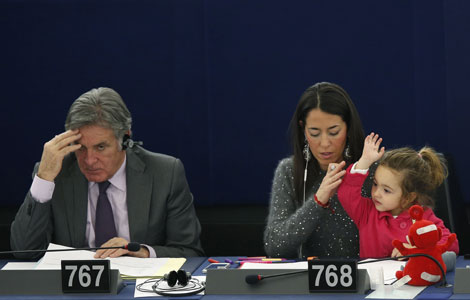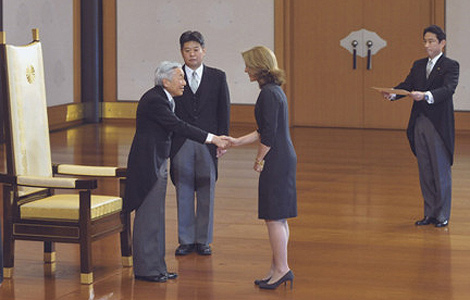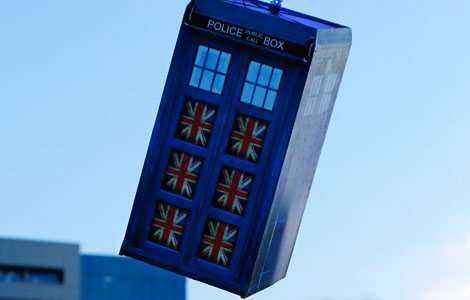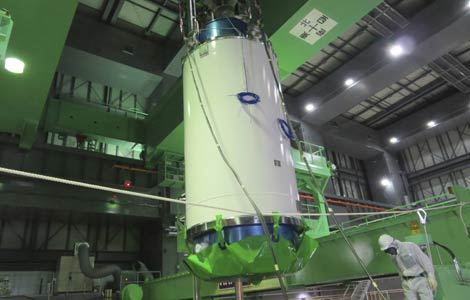

|
A Chinese tourist buys souvenirs at a gift shop in Rovaniemi, northern Finland. Provided to China Daily |
Experts also agree that it is important for both China and the EU to address the current, topical issues and the critical long-term challenges.
"China and Europe are championing the global efforts on green energy and other sustainable technologies. There is immense scope for cooperation between the two sides. I hope the summit moves forward on these issues," Dent from the University of Leeds says.
The China-EU summit this year is one of several political gatherings between Beijing and the leaders of major global powers since the new Chinese leadership took power. Since its inception in 1998, most of the annual China-EU summits have taken place in the second half of the year.
However, trade tensions over solar panels since last September have clouded bilateral relations between the two sides.
"Brussels has a love-hate mindset toward Beijing," says former parliamentarian Ford. "The ups and downs of China-EU relations during the past decade have occurred due to the EU's love-hate mindset toward China."
Ford says China has also played its part by heavily subsidizing its industries. "But it is not the only nation doing so," he says.
Experts say that though there was a honeymoon period after bilateral ties began in 2003, there is still reluctance in Brussels to end the arms embargo on China. Other major irritants included Brussels' defensive measures against Chinese textile exports in 2005, and the latest anti-dumping and anti-subsidy investigations against China's solar panels.
Balanced approach
Holslag from the Brussels Institute, however, feels that both China and Europe are responsible for letting the partnership become one of process rather than progress.
"The good thing is that both sides have recognized that it is not the quantity of dialogue, but the strength of the partnership that matters in global affairs," Holslag says.
"I am not certain whether this will lead to overall improvement, but I can only hope that we start by building a relationship that is strategic and more balanced."
Ford says that it is important for China to forge strong ties with the EU, as it would help offset the growing influence of Washington.
To support his statement he cites British Prime Minister David Cameron, who on the one hand calls for more investment from China and then urges action against Beijing for industrial subsidies.
Dewit from the Belgian-Chinese chamber anticipates that both sides will have a better understanding of the future social challenges as the economic interdependency deepens.
Pressing his point, he says that China's rapid economic development has led to widespread changes in Western economies.
"There has been a sort of revolution in sectors like the textile industry. European companies that were unable to withstand the external competition had to shut shop. The solar panels issue is a good case in point," Dewit says.
"The social tensions caused by the competition have also put more political pressure on European policymakers to retaliate."
Dewit says that Chinese companies also had to face stiff competition from European companies within China, when China joined the World Trade Organization. "There was political pressure on Chinese decision makers too at that time to retaliate," he says.







